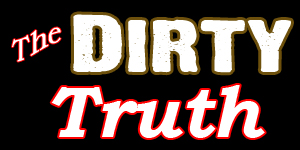 The great joy of being a first-time storyteller is that your entire life is new stage material. Everyone has those three or five great stories that they’ve been dishing from bar stools and dinner tables for years and years, so it’s natural to GO THERE when you decide to get your feet wet on the story stage. (Experienced storytellers, by the way, secretly despise newcomers for this mother lode of golden content, which the vets mined out of existence eons ago. Now they’re left stretching anecdotes from their kids’ bake sale or signing up for Tough Mudder races, hoping to turn pyrite into narrative pay dirt. It can get desperate out there in Storyville, so be warned…)
The great joy of being a first-time storyteller is that your entire life is new stage material. Everyone has those three or five great stories that they’ve been dishing from bar stools and dinner tables for years and years, so it’s natural to GO THERE when you decide to get your feet wet on the story stage. (Experienced storytellers, by the way, secretly despise newcomers for this mother lode of golden content, which the vets mined out of existence eons ago. Now they’re left stretching anecdotes from their kids’ bake sale or signing up for Tough Mudder races, hoping to turn pyrite into narrative pay dirt. It can get desperate out there in Storyville, so be warned…)
In a sense, the first-timer’s got it easy, with stories galore aligned with multiple themes for productions on every side of the Potomac. So pitch away, get cast, bask in the warm chatter of human communion! But beware – thar be trouble in the wine-dark river, for your story treasure may in fact be too rich! Our oldest, go-to stories can, over time, become over-larded with plot points and tangental asides and overwrought emotions that can ruin a tale for an audience that doesn’t know you personally.
Here are a few mistakes you can make when choosing your stories and translating them for performance. Remember: while your goal is being true to yourself and your story, you also have an obligation to those folks in the crowd. They want to know only what’s absolutely necessary to understand your story and why you’re telling it. Anything extra is stuff for another story, another time, and another slice of your personal truth.
Mistake 1: Storytelling – The Low-Cost Therapy Option.
What it is: You, sir. The one with the crossbow… Can you put that down? I know your partner left you after an unending engagement and you’re not feeling so hot right now. And that your devoted spaniel Tucker was recently run down… by a Tucker automobile at the Fairfax Classic Auto Show. (LOL! How ironic! SIR – the crossbow!) What terrible tragedies, truly. And… NO WAY! What kind of universe blights your heirloom azaleas at the same time? Perhaps the best choice for you then, instead of human massacre by medieval implement or professional counsel, is to see how many buckets of tears you can fill over eight minutes onstage. Let it out, man. All of it. Right now.
How it unhinges stories: The traditional story arc goes something like this…
- I’m this way (insert vulnerabilities) and…
- My whole life I’ve behaved in manner X, Y, & Z (as these cute micro-anecdotes reveal).
- Then one day, this nutty thing happened (insert thing) and…
- I heightened those behaviors I always do… or did something completely (and unexpectedly) different in response.
- As a result, I changed – usually for the better.
- Then the audience says, “Wow, this guy had a helluva (hard/good) time and has really processed that experience. It reminds of me of my (insert calamity/fortune). Maybe we can be social media contacts.”
But Therapy… teller hasn’t made it past step 3). That nutty thing? It’s not a singular event, confined to space and time, but this slow-motion, perpetual presence that continues to assault his identity. No detail about that moment is too insignificant to rehash, no vulnerability too trivial to reveal. The result is an avalanche of unexamined truth that leaves the audience with its fingers poised to dial 911.
Prophylactics: Make sure enough time has passed between your trauma and the time you decide to get onstage. You must have accepted the event and moved on. Carefully select the details about the event to include – you don’t have to tell us everything to be honest. Just focus on the most important, lingering elements, and only those that justify how it changed you. The rest can stay private and hopefully you’ll hold it together under the spotlight.
Mistake 2: Guys, this happened… to me!
What it is: Callow storytellers, this one’s for you. Maybe you were fired once for a bogus reason. Or maybe you were robbed at knife-point just a block from the local Whole Foods. Or perhaps you had a “cancer” scare when you confused a deep-tissue bruise for a “lump” and then spent a terrifying night in a Google hell-scape. I THOUGHT I WAS GOING TO DIE! But luckily, hours later, Dr. Nether-region set you straight. Phew!
How it unhinges stories: These stories masquerade as coming-of-age tales: I thought X was true, then found out it was really Y. Very relatable stuff – usually – but the Guys… teller focuses on the wrong details and trades his vulnerability for narrative minutiae. He gives us plot, not feeling or personal insight, and leaves the audience to sort out his hopes and fears as he repeats some version of “Crazy, huh?” over and over again. The effect is not only alienating but also fails to explain why a particular tale is worth recounting.
Prophylactics: Soul-searching, younglings! (Kidding, that’s for when you’re old.) Pare back the narrative to it’s most essential parts and spend more time there. The biggest moments should be slow, glorious languors. Choose key details that reveal your unique life-force, views, and passions. Trust the audience to fill in minor plot points (e.g., everyone knows that to enter a building, you have to go through a door).
Mistake 3: Scenes on a Theme – The Anecdotal Litany.
What it is: I’m so happy to be here tonight, I have so much to tell you about my lifetime of “Close Calls!” Like when I was 12, I was running late to school and ran my hardest toward the bus, but it pulled off before I got to my stop. I was feeling all glum – now I would have to ask Dad to drive me! – when BOOM the bus hit a cement truck! Soooo glad I wasn’t on there… Oh, and then, in college, I passed out in the middle of a keg stand and had to go to the hospital. I heard someone say, “Get her affairs in order,” but once I got my stomach pumped I felt better! Yay! And just a few weeks ago my child got lost at Target and I was convinced some bogeyman had taken him away. But then the store manager announced a Minecraft tournament in Electronics and he reappeared! I guess when it comes to close calls, I’m a lucky girl.
How it unhinges stories: This is a non-story shoe-horned into a production’s theme. The teller thinks it’s bonkers how Calamity Alpha is always happening to her, but she never connects this series of events to her life’s narrative and, perhaps worse, those events never really seem to change her. Listening to these stories is like hearing a bunch of bros trying to one-up each other with ever-more-esoteric Simpsons trivia at the bar at 2:00 a.m. The audience winds up not caring about the thin narrative that remains because the Litany teller has given them no reason to care about her. Those chairs you hear shuffling? That’s people sneaking off to the bar.
Prophylactics: Check out the traditional story arc from Mistake 1. You can stuff parts of your litany into step 2), but these must be quick hits meant to establish how you typically react when Calamity Alpha rolls your way. But you shouldn’t spend too much time there. Try to figure out what it is about you that explains why you are continually in the wrong place at the wrong time. And be sure to hold back one example of Calamity Alpha from your litany – this is where you’re going to highlight the one time that that event really changed you in steps 3) – 5). Slow things down, there, and show how the event hooked into your worldview and personal truths. This will explain why your litany matters to you and, not incidentally, the rest of us.
The Dirty Truth is a monthly column dedicated to the concept of truth in storytelling, written by Derek Hills and Kathy Baird.
 DEREK HILLS is a storyteller from Washington, DC and performs regularly with local heavyweights SpeakeasyDC, Story League, & Better Said Than Done. His first solo show – No Sex, Please – debuted recently at the Capital Fringe Festival. He’s now working on a new one-act comedy called Prison Break, which satirizes America’s extreme sports culture and will premiere in Fall 2015.
DEREK HILLS is a storyteller from Washington, DC and performs regularly with local heavyweights SpeakeasyDC, Story League, & Better Said Than Done. His first solo show – No Sex, Please – debuted recently at the Capital Fringe Festival. He’s now working on a new one-act comedy called Prison Break, which satirizes America’s extreme sports culture and will premiere in Fall 2015.


